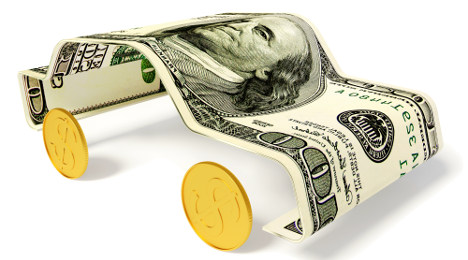Byrd: Benefits Of Offering Debt Cancellation Coverage

By subscribing, you agree to receive communications from Auto Remarketing and our partners in accordance with our Privacy Policy. We may share your information with select partners and sponsors who may contact you about their products and services. You may unsubscribe at any time.
GLOUCESTER, Va. –
There’s another one to add to the stack of lapsed insurance notifications. Another customer has decided that having insurance is not a priority.
Some customers you can’t blame. The premium is higher than their car payment. You’ve hired a full-time person just to make those calls every day. Why? To cover your liability, that’s why. Because, if they total the car, they can’t afford to pay for a car they no longer have, that’s why.
And then, you’ll lose them as a customer, not to mention the loss of the car itself.
So, you call them up and say, “You agreed that you would keep insurance on this car. If you don’t have your insurance reinstated right away, we are going to have to repossess your vehicle.”
But wait. If they are paying you like clockwork, do you just overlook the fact that their insurance has lapsed? After all, payments are the lifeblood of buy-here, pay-here.
So here is the dilemma: you need them to keep paying, but your collateral is unprotected. You pay someone to call them and threaten to repo the vehicle if they don’t go spend money with someone else. Or you take a chance. You let them ride, unprotected. You, by the way, are the unprotected one.
Subscribe to Auto Remarketing to stay informed and stay ahead.
By subscribing, you agree to receive communications from Auto Remarketing and our partners in accordance with our Privacy Policy. We may share your information with select partners and sponsors who may contact you about their products and services. You may unsubscribe at any time.
The problem begins when the customer allows their coverage to lapse, putting into jeopardy the dealer or finance company’s collateral. Industry research indicates that 50 percent of most BHPH books of business are uninsured. Customers put an average of $300 into insurance policies that they let lapse within 90 days, essentially throwing away that money.
Many dealers have personnel on their own payroll exclusively for the purpose of making collection calls for the financial benefit of insurance companies!
How Debt Cancellation Coverage Works
Have you wondered if there isn’t there a better way?
What if you made a deal with your customers? “You pay a little extra each pay period to me, in return, if you total your car or it’s stolen and not recovered, I will forgive your debt to me.”
That is the definition of debt cancellation coverage (DCC). You collect the premium with each car payment. You can make it a part of their monthly payment to you or as a side note.
Debt cancellation coverage is a solution to relieve the lapsed insurance problem and turn what once was an expensive, never-ending problem into a tremendous profit center. By capturing the money the customer would be spending with the insurance company and ceding it to your dealer-owned reinsurance company, you profit instead of the insurance company.
So you profit from money that you had required the customer spend with someone else.
DCC alleviates the need for you to require full coverage insurance. DCC puts you in control when there are claims. Instead of dealing with the insurance adjusters, you have a professional claims team looking out for your best interest, nationwide. DCC dealers avoid having unprotected collateral on the road and having to absorb uninsured losses.
Plus, DCC makes it simple for you to enroll, right away, your current customer base as well as your new customers, at time of sale.
Operators can require that collateral is covered. Since you require it, and you make collection calls on it, doesn’t it make sense that you profit from it?
Reminders of What DCC Does Not Cover
This is not liability insurance. State regulations require that drivers get liability coverage, but that is no longer your burden.
Another very important benefit to owning a dealer-owned reinsurance company is tax benefits. I am not a CPA, but I know some good ones.
They tell me in layman terms, reinsurance companies are small property and causality companies. Here are some guidelines I found.
Small property and casualty insurance companies with less than $1.2 million in annual net premiums may elect to be taxed only on investment income under Internal Revenue Code 831 (b).
Distributions are taxed at the dividend rate. These corporations, unlike “S corporations” or limited liability corporations (LLC) where income flows through to the shareholders annually, are “C corporations.”
Regulations say 831(b) C corporations allow the shareholder a more long-term approach. If a distribution is not desirable, you can retain the money in your reinsurance company, or you or your other business entities may borrow money from your reinsurance company.
Furthermore, 831(b) corporations make great retirement programs. Earned reserve can be invested in stocks, bonds or other securities within the trust account, and 831(b) corporations make a great estate planning tool.
By the way, your vehicle service contracts and warranty reserves can be ceded into the same dealer reinsurance trust account.
Tim Byrd is founder and president of Tim Byrd & Associates, a managing agency located in Gloucester, Va. An auto industry expert on dealer-owned reinsurance companies, BHPH operations and F&I development, Tim has been a trusted adviser to many dealers for more than 25 years. Tim can be reached at [email protected] or (804) 824-9533.


